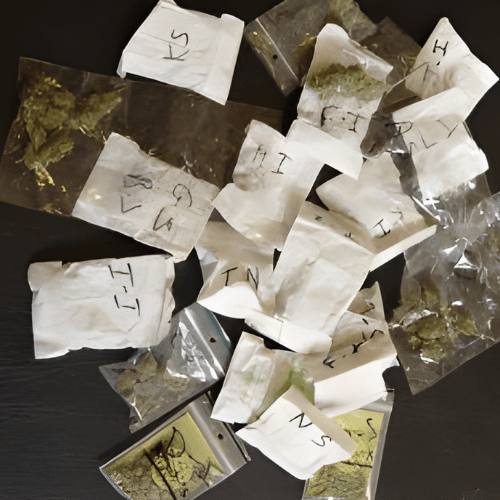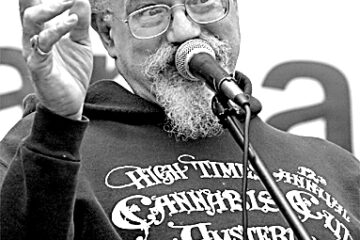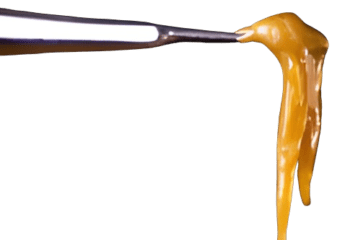
Are Cannabis Cups Legit?
Cannabis Cups and Growers Awards, organized by various cannabis-related organizations and grassroots groups are events that celebrate the best cannabis strains, products, and innovations in the industry.
Typically they feature an annual competition in several categories, where, different cannabis products are judged and awarded prizes based on criteria like taste, potency, aroma, and overall quality.
Reputation and Seniority
While many of these events remain localized and transient, several Cannabis Award Shows rose above their initial scope, evolving into iconic symbols of 21st century cannabis culture. These prestigious championships can offer participants invaluable recognition and global exposure.
Consequently, reputation holds considerable weight for these events, with certain Cups and Awards solidifying their status as reputable institutions over many years, if not decades. However, while reputation and seniority are important factors, they are not the sole determinants of their credibility.
Impartiality and Transparency
Transparency in the judging process is crucial. Judges must maintain impartiality and independence, free from external influences or biases. To achieve this, blind testing methods are often implemented, ensuring that judges are unaware of the identity of the samples they are evaluating.
In double-blind tests neither the contestants nor the testers are aware of which products are being tested, facilitating unbiased and objective evaluations of the entry’s quality and attributes.
The influence of sponsors and advertisers can nonetheless introduce potential biases into the judging process, particularly at larger cannabis championships that are part of a trade show, festival or conference. Sponsors may have vested interests in specific brands or products, which could sway judges’ perceptions and evaluations.
In smaller-scale events, judges may have personal or professional connections with contestants, potentially leading to biases in evaluations. Furthermore, local contests may have fewer safeguards in place to ensure impartiality compared to larger, more established events.
People’s Choice Awards
When discussing the legitimacy and integrity of Cannabis Cups and similar cannabis awards, a comparison arises between awards determined by popular vote (People’s Choice) and those judged by industry professionals.
People’s Choice Awards rely on the collective preferences of consumers or the general public. While they offer a more democratic insight into popular opinion and consumer satisfaction, they may not always reflect the highest standards of quality or expertise. Factors such as marketing, brand recognition, and social media influence can significantly sway results. Moreover, the sets with samples, or kits, made available to the public to judge, can also be bought and judged by individuals with thighs to the contestants. Despite this, People’s Choice awards can provide valuable feedback on cannabis strains, products, and brands, indicating market trends and consumer preferences.
Expert Judges
In contrast, awards judged by industry professionals or experts within the cannabis sector are often regarded as more rigorous, with judges drawing on their expertise and industry knowledge.
While awards determined by industry judges may not have the broad appeal of People’s Choice awards, they offer a more refined assessment of product quality and craftsmanship, which can contribute to the credibility and appreciation of a cannabis competition within the industry. However, industry judges may also be susceptible to bias. Factors such as personal preferences, relationships with certain brands or growers, and underlying industry dynamics can influence their judgments. For example, judges may have affiliations with specific companies or interests in promoting certain products or trends.
In assessing fairness, both People’s Choice and Industry Judges offer distinct advantages and challenges. People’s Choice awards empower consumers to express their preferences directly, ensuring a democratic process. However, they may be influenced by factors such as marketing and social media, potentially skewing results. Conversely, Industry Judges bring expertise and established criteria to evaluations, aiming for objectivity. Yet, their judgments could be swayed by personal biases or affiliations.
Celebrity Judges
Celeb judges in cannabis competitions bring a tantalizing blend of star power and enthusiasm to the event, enhancing its prestige and drawing global attention.
At the same time, it is not unthinkable that celeb judges might possess personal preferences for certain strains, products, or brands, impacting their evaluations during the judging process. More importantly, their affiliations with specific cannabis companies or brands could influence their judgment, whether through endorsements, partnerships, or financial ties. Additionally, celebrities may feel compelled to align their judgments with their public image or values, potentially favoring products or brands that reflect their persona. Peer influence is another factor, as celebs may be swayed by the opinions of other judges or industry insiders.
In short, while celebrity involvement enhances the profile of cannabis competitions and indispensably contributes to cannabis culture in general, organizers should consistently implement measures to mitigate biases and maintain the integrity of the judging process.
Empirical Data
Independent lab results can play an important role in judging cannabis contests by providing empirical data rather than relying solely on subjective evaluations by judges. These results offer objective measurements of key factors such as cannabinoid potency, terpene profiles, and the presence of contaminants like pesticides or heavy metals.
Scientific analysis helps ensure reliability and consistency in assessing the quality and safety of cannabis products. By incorporating laboratory results into the judging process, competition organizers can establish clear standards and criteria for evaluating entries. Moreover, lab testing helps identify unique characteristics and attributes of each cannabis strain, allowing judges to assess its complexity and divergence with greater precision. In addition, lab results provide valuable feedback to growers, breeders, and manufacturers, enabling them to refine their cultivation techniques and product formulations. This continuous improvement cycle contributes to the advancement of the cannabis industry as a whole, driving innovation and quality across the board.
Safety and Legality
Another aspect to consider is the compliance with local regulations. In regions where cannabis is legal, events must adhere to applicable laws and policies concerning the sale and consumption of cannabis products. This ensures that the event operates safely and legally.
Credibility and Relevance.
Overall, regardless of event size, it is crucial for organizers to prioritize transparency, integrity, and fairness in the judging process. After all, by doing so, cannabis competitions can uphold their credibility and ensure that awards are based solely on the merits of the products being evaluated.
Even though the vast majority Cannabis Cups and Growers Awards may be legitimate and reputable events within the cannabis industry, for participants and visitors it remains essential to research the specific event, organizers, and judging criteria to determine their credibility and relevance.
More reading: A simple guide to conducting your own blind bmell & taste test









You must be logged in to post a comment.